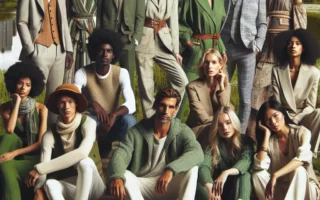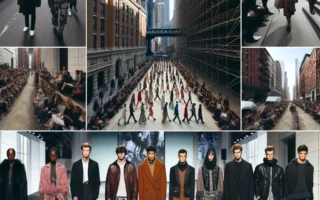Eco-Friendly Fabrics: The Key to Sustainable Fashion
In recent years, the fashion industry has seen a significant shift towards sustainability, and one of the key factors driving this change is the use of eco-friendly fabrics. These fabrics are not only better for the environment, but they also offer numerous benefits in terms of quality and versatility.
One of the most prominent eco-friendly fabrics making waves in sustainable fashion is organic cotton. Unlike conventional cotton, which is grown with the use of harmful pesticides and chemicals, organic cotton is produced using methods and materials that have a low impact on the environment. Additionally, organic cotton farming promotes better soil health and helps conserve water, making it a top choice for environmentally conscious fashion brands.
Another popular eco-friendly fabric is Tencel, also known as lyocell. Made from eucalyptus trees, Tencel is produced using a closed-loop process that minimizes waste and reduces the use of water and energy. This fabric is not only biodegradable but also boasts a silky smooth texture and excellent moisture-wicking properties, making it a favorite for eco-conscious designers and consumers alike.
Bamboo fabric is also gaining traction in the sustainable fashion industry. Bamboo is a highly renewable resource that grows quickly and requires minimal water and no pesticides. The resulting fabric is breathable, soft, and hypoallergenic, making it a great choice for eco-friendly clothing.
These eco-friendly fabrics are just a few examples of the innovative materials driving the sustainable fashion movement. As consumers become increasingly aware of the environmental impact of their purchasing decisions, the demand for clothing made from eco-friendly fabrics is expected to continue rising. Embracing these materials is not just a trend, but a crucial step towards a more sustainable and ethical fashion industry.
Circular Economy: Redefining the Fashion Industry
In recent years, the fashion industry has been undergoing a significant transformation towards sustainability, with a key aspect being the adoption of circular economy principles. This shift is redefining the way fashion is produced, consumed, and disposed of, and it is playing a crucial role in reducing the industry’s environmental impact. One of the major trends to watch in sustainable fashion is the emphasis on circular economy models that promote a closed-loop system, where materials are reused, recycled, or upcycled rather than ending up as waste. This approach not only minimizes the extraction of new resources but also contributes to the reduction of landfill waste and the overall carbon footprint of the fashion industry. As more fashion brands and designers embrace circular economy principles, we can expect to see a significant shift towards a more sustainable and environmentally friendly fashion sector.
Consumer Mindset Shift: Embracing Sustainable Fashion Trends
In recent years, there has been a noticeable shift in consumer mindset towards embracing sustainable fashion trends. Consumers are becoming more conscious of the environmental and social impact of the fashion industry, leading to a growing demand for sustainable and ethically produced clothing. This shift can be attributed to the increasing awareness about issues such as climate change, pollution, and unethical labor practices in the fashion supply chain.
Key trends to watch in the rise of sustainable fashion include the preference for eco-friendly and organic materials, the rise of second-hand and vintage shopping, and the demand for transparency and ethical practices from fashion brands. Consumers are actively seeking out clothing made from natural, renewable resources such as organic cotton, hemp, and bamboo, in an effort to reduce the environmental impact of their wardrobe choices.
Furthermore, the popularity of second-hand and vintage shopping is on the rise as consumers recognize the value of extending the lifecycle of clothing and reducing waste. The circular fashion movement, which emphasizes the reuse, repurpose, and recycling of clothing, is gaining momentum as consumers embrace a more eco-conscious approach to fashion consumption.
As consumers continue to prioritize sustainability, they are also demanding greater transparency and ethical practices from fashion brands. This includes knowing the origins of the garments they purchase, ensuring fair wages and working conditions for the workers involved in production, and supporting brands that align with their values.
In conclusion, the rise of sustainable fashion is closely tied to a significant shift in consumer mindset, as people increasingly prioritize ethical and environmentally friendly choices in their fashion consumption. As these trends continue to gain momentum, it is clear that the future of fashion is moving towards a more sustainable and responsible industry.



